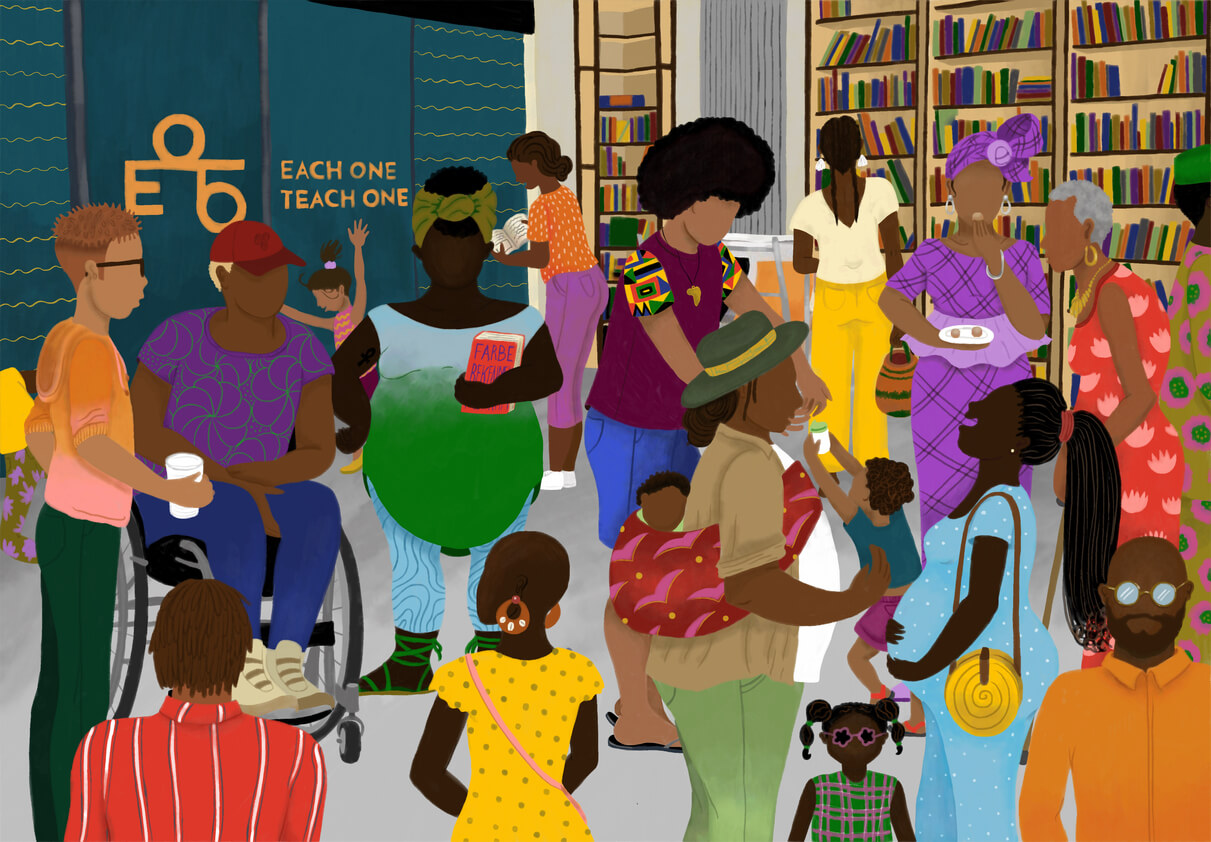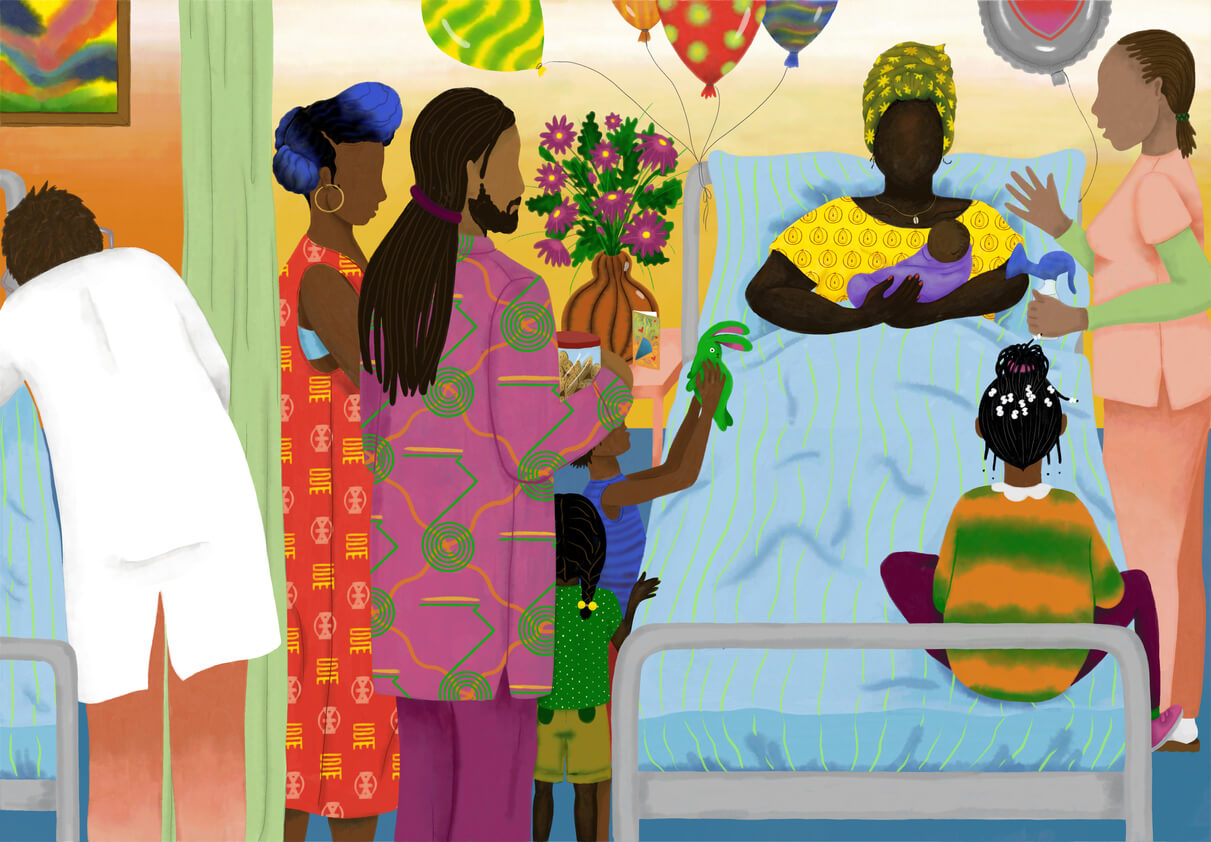The Report
Afrozensus 2020
Afrozensus 2020
In
Germanythere are over onemillionpeople ofAfrican origin.Until now, there was
hardly any other statistical dataon this group.The
#AFROZENSUSis changing that.
It is the largest survey ever conducted among Black, African and Afrodiasporic people in Germany on six topics:
- Civic Engagement
- Experiences of discrimination in 14 areas of life
- Dealing with discrimination
- Political demands
- Anti-Black racism
- Resilience and empowerment
You can download the report, including appendix and graphics, free of charge in English and German here:
Afrozensus 2020

The data makes it very clear: Black, African and Afro-diasporic people are very diverse.
At the same time, however, they also share many common experiences.
The diversity is already evident in the participants:
They were born in 144 countries.
Most of them in Germany (2,822 people)…
...followed by the USA (111), Nigeria (81), Ghana (76), Kenya (62), Eritrea (56), Ethiopia (54), Cameroon (49) and Brazil (47).
The average age of the total population in Germany is 44.3 years.
Afrozensus respondents are relatively young.
Most respondents are between 20-39 years old.
This corresponds to the official statistics.
According to the DESTATIS microcensus, people of African origin in Germany are very young overall.
Most respondents speak 3 languages.
The interviewees also differ in their self-designations…
Most Afrozensus respondents position themselves as “Black” (74.9 % of n = 3834).
The most frequently mentioned combination of self-positioning is that of “Black”, “Afro-German” and “Person of Colour”.
...over 90 % of those surveyed stated that their hair was grabbed without being asked.
This is an example of the othering and exoticisation that Black people experience.
One respondent shares this experience:
“I was sitting at the railway station with the book 'Deutschland Schwarz Weiß' by Noah Sow and was approached by an older lady (without warning, no apology) asking if my hair was real. While she was asking, she grabbed my hair. I was paralysed for about 30 seconds. I closed my book and looked for the hidden camera during this time because I was really convinced that this was a test or a sketch. I was reading this book!!! And then someone actually just grabs my hair. I just could NOT believe it.”
The sexualisation of Black people is also a common experience.
Overall, almost 80% say they receive sexualised comments about their appearance or 'origin' on dating apps.
Criminalisation is also a shared experience.
Over 56% state that they are asked whether they sell drugs.
...and over 56% also state that they have been stopped by the police for no reason.
One person shares this experience:
Over 90 % state that they are not believed when they address racism.
When they express criticism, they are accused of being angry. This experience is shared by 86% of respondents.
The Reaction Dilemma
In the report, we identified the Reaction Dilemma:
No matter which path we choose individually,...
...whether we ignore or relativise Anti-Black Racism,...
...or actively criticise it...
...both come at a cost to us and it is always possible that discrimination will continue to increase.
In order to push back Anti-Black-Racism, at least to some extent, a political focus on the empowerment of Black, African and Afro-diasporic is necessary.
Because Anti-Black-Racism has a specific effect, specific measures are also necessary:
- As part of the UN Decade for People of African Descent: Government Action Plans to combat Anti-Black-Racism and empower Black, African and Afro-diasporic people
- Counselling centres throughout Germany for those affected of Anti-Black-Racism
- University departments for Black Studies
Also important is:
- Financial support:
Empowerment must structure the Democracy Promotion Act (Demokratiefördergesetz) as a strategic goal. - Institutionalisation:
Empowerment infrastructure is needed, including in the form of communities centres.
Report Download
Afrozensus (PDF):
1-sided
2-sided
Library (Zip|BibText)
Graphics (Zip)
Appendix (PDF)
In addition to the shared experiences of Anti-Black Racism, there are also significant differences.
Afrozensus 2020

Particularly affected by discrimination are trans*, inter* and non-binary people, respondents with impairments and/or disabilities and Black people with two African or Afro-diasporic parents.
In the area of health and care, for example, Black trans*, inter* and non-binary people experience discrimination particularly frequently.
Compared to cis people, they are the most likely to report experiencing discrimination (81.7% of n = 104).
Of the cis-men, 50.3% stated that they had been discriminated against in this area and 67.1% of the cis-women.
There are also statistically significant differences in experiences of discrimination between respondents with and without disabilities.
8 out of 10 respondents with disabilities stated that they were discriminated against in contact with public authorities (81.6% of n = 267).
Among the respondents without impairment, the figure is 6 out of 10 (62.8 % of n = 1175).
Respondents with two African / Afro-diasporic parents often experience discrimination on the housing market.
83.4% state that they have been discriminated against on the housing market.
This is significantly more common than respondents with one African parent (65.9 % of n = 1036).
We thus make different experiences with overlapping forms of discrimination.
It is therefore important to intensify efforts for necessary alliances and community-internal dialogue on the realities of life and structural discrimination.
The intersectionality and multidimensionality that is evident in the data must become even more central to community work.
The vulnerability of subgroups should be countered with resources, spaces, solidarity-based responsibility and communities care.
